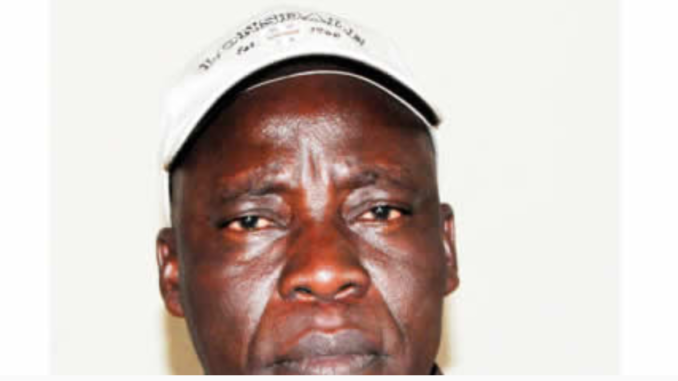
A labourer deserves his wages, is a time honoured maxim, which the Nigeria Union of Teachers is drumming into the ears of governors in 12 states with mountains of teachers’ salary arrears. Some states owe half salaries for between 26 and 28 months. In one state, primary school teachers have not been paid for 12 months. These sound like fairy tales, but they are not.
The National President of the NUT, Michael Olukoya, who bemoaned this development early this month, said a nationwide strike was imminent. The affected states, according to him are, Abia, Bayelsa, Benue, Delta, Ekiti, Kaduna, Kwara, Kogi, Nasarawa, Ondo, Osun, Oyo and Taraba. Both primary and secondary school teachers are affected.
Salary backlog has been a nightmare for at least 27 states since late 2014 when crude oil prices at the global market crashed. But trifling with teachers’ pay is graver as it threatens not just the future of the pupils, but that of the country. The states involved should be conscious of the fact that “every development success story starts with education,” as the Director-General of UNESCO, Irina Bokova, put it.
This ugly narrative shows Osun and Nasarawa states as the worst hit with their half salary indebtedness for 28 and 26 months respectively. Benue State has 12 months arrears for primary school teachers; Ekiti State (nine months for primary and five months for secondary teachers); Bayelsa State owes seven months for primary; Taraba State (six months for primary); Delta and Kaduna states owe five months for primary and secondary school teachers each; Abia State (five months for primary and seven months for secondary); Ondo owes four months; while Oyo State owes one month to both primary and secondary school teachers. Some of the states including Osun, contested the NUT’s figures.
A teacher owed this long will be hit by low morale and diminished self-esteem, which would invariably render them ineffective in the classroom. When pupils are not well taught, they resort to malpractices to pass their examinations. This misdemeanour is very much in evidence in Kogi State, where the West African Examinations Council recently barred 47 schools – public and private – from being centres for its exams.
In Benue State, which Olukoya said would be spared of the planned strike because of insecurity there, the teachers in 2014 embarked on a nine-month strike to force the implementation of the N18,000 minimum wage. One academic year was lost. The arrears between 2011 and 2013 were sacrificed, for the implementation to begin in January 2014. The then governor, Gabriel Suswam, had sworn, “There is no way, even if the teachers are on strike for 20 years, I can’t raise N4 billion to pay all these salaries; that is practically out of place.”
But he had created the monster with the review of permanent secretaries’ salary from N73,000 to N400,000 per month, and those of other personnel, shortly after he assumed office in 2007. The state’s internally generated revenue, for instance, was N7.6 billion in 2015, according to the National Bureau of Statistics. This amount is not enough to settle one month’s civil servants wage bill today.
Apparently, Suswam’s political expediency also defines governance in many states, and it explains in part why they are in the wage bill cul-de-sac. The matter is made worse by their inability to rid their payrolls of “ghost workers” and wrong policy choices. Nasarawa State is in this hell-hole because, with its N4.2 billion IGR annually, as of 2015, it owns a state university, a polytechnic and a college of education. It is also building an airport, despite being encircled by Abuja, Kaduna and Plateau states with such facilities. Instructively, records show that only the Lagos and Abuja airports are viable nationwide.
Partly to assist the states to clear the salary mess, President Muhammadu Buhari has granted bailouts of N1.19 trillion since last September. But reports that this financial relief is being abused by either diversion to other projects or outright embezzlement compelled the President to appeal to traditional rulers to persuade governors in their respective domains to deploy the funds judiciously.
With misplaced priorities and a bloated workforce, many states will continue to owe teachers’ salaries. A reversal will come when states realise that they are economic zones and develop accordingly. There is no state without resources it could tap or develop. Besides, keeping a manageable and productive workforce is critical. Ironically, the NUT and the organised labour elevate emotive considerations above reason when any state wants to embrace this reality.
Education is far too important an issue to be toyed with. Indeed, it is bizarre that in today’s world driven by knowledge and human capital development, teachers will be owed for 13 or 14 months and our society is not jolted. This is how the foundation for a worse future is laid.
While it is like squeezing water out of stone for some states to pay teachers, an Organisation for Economic Co-operation and Development data in 2016 showed that a high school teacher starter in Luxembourg grossed $73,000 per annum to be the highest globally, whereas his experienced counterpart received $131,000. Other countries where teachers are highly remunerated are Ireland, South Korea, Germany, the United States, Austria, Canada, Japan, Finland, the Netherlands and Sweden.
As a federation, no state in Nigeria should depend on the centre for survival. Each of the 36 states should be imaginative, develop its economic potential, use its resources prudently, and for all to see corruption as an ogre deserving of collective assault. Only a governance template with these mechanisms will permanently deal with this teachers’ pay conundrum.
END

Be the first to comment